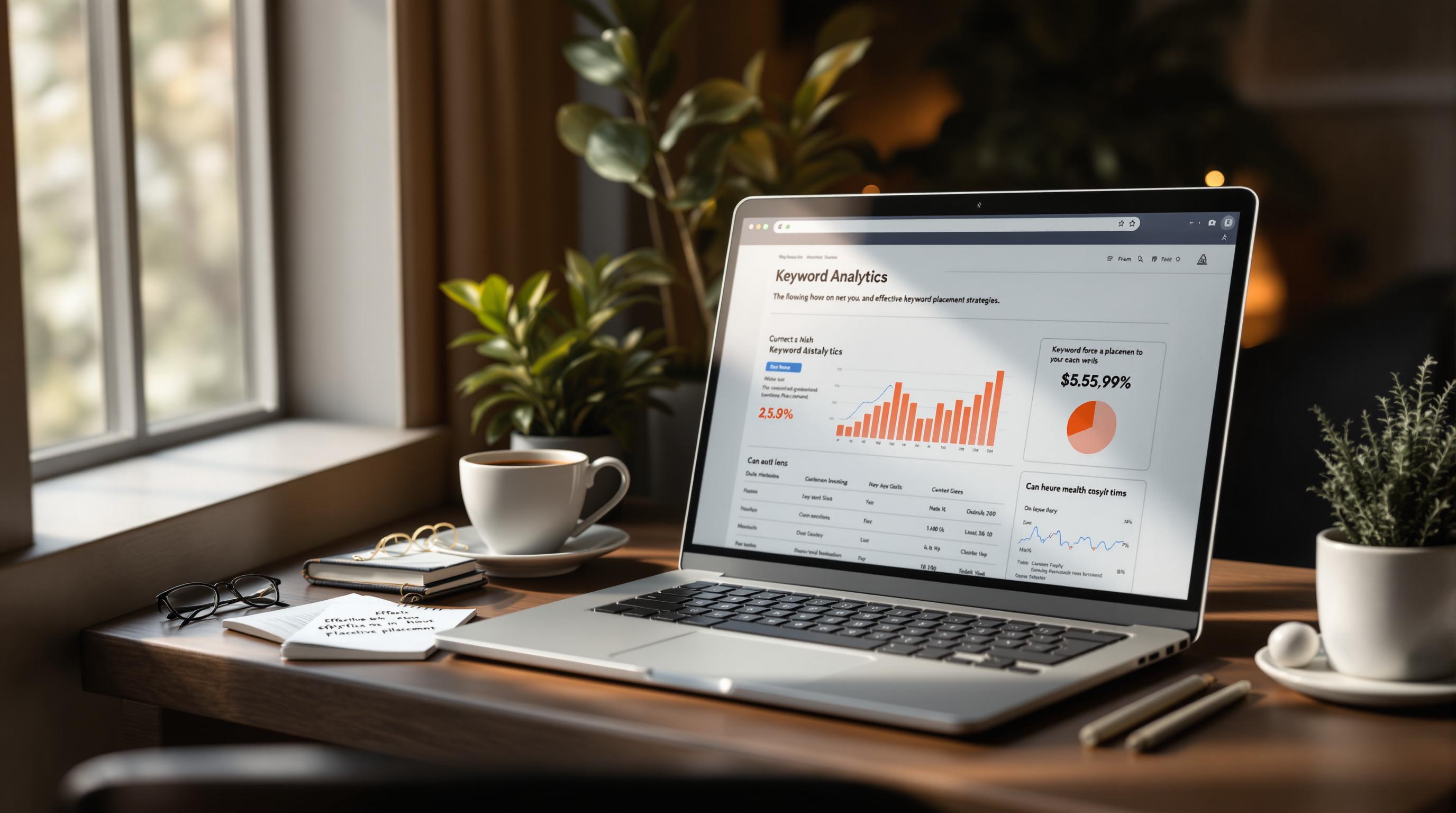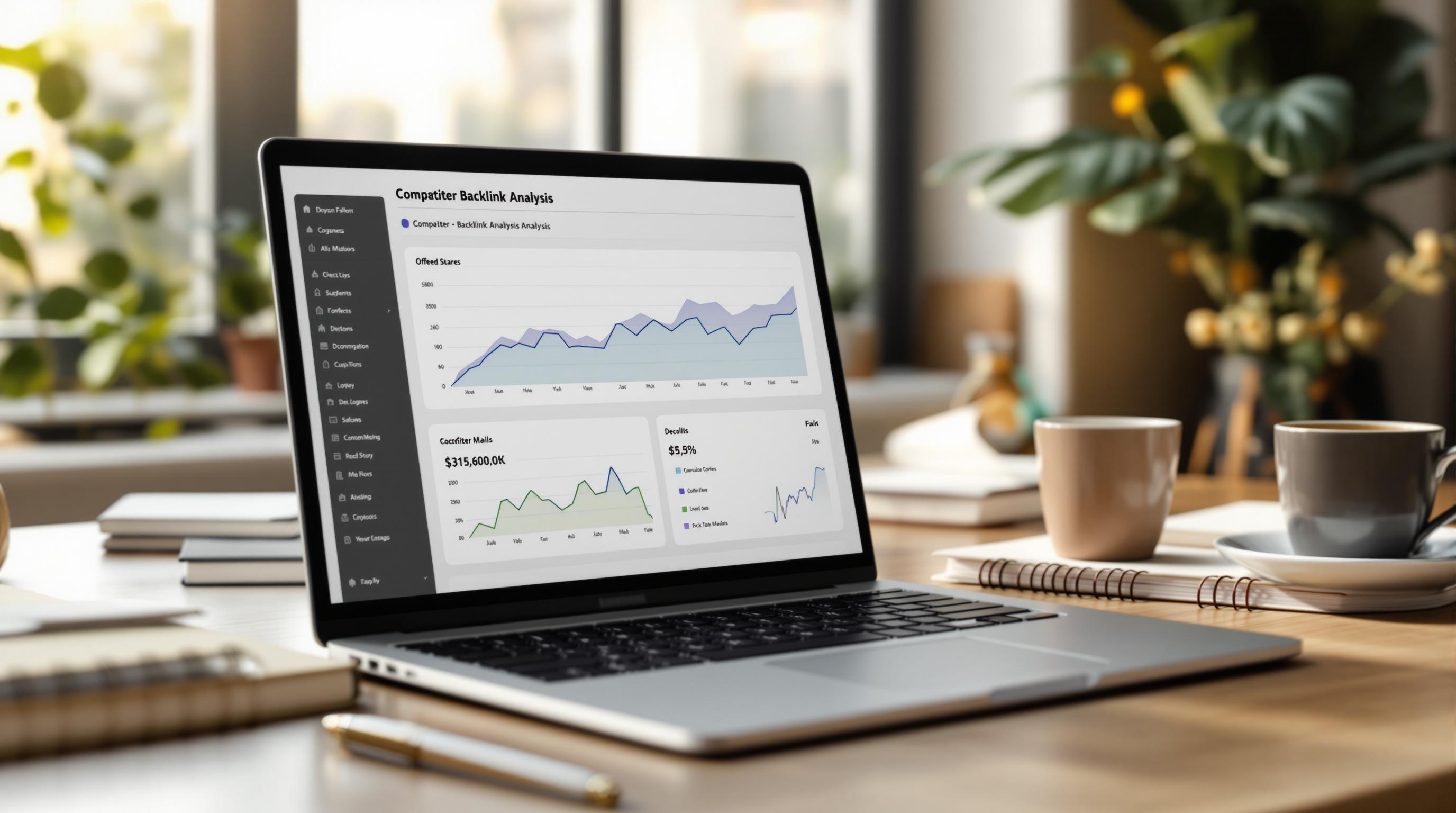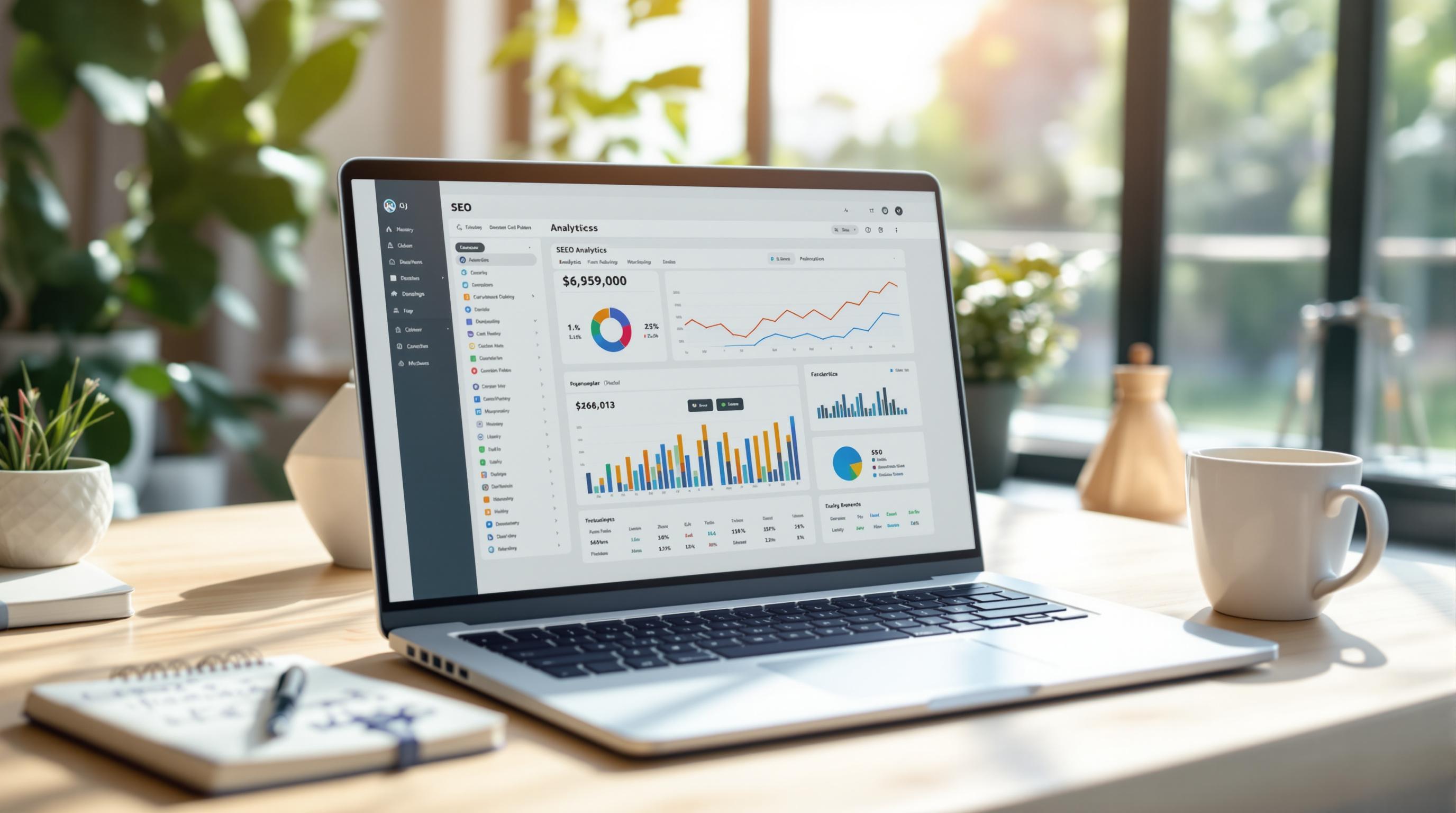Choosing between Local SEO and National SEO depends on your business goals, audience, and budget. Here's a quick breakdown:
- Local SEO: Targets nearby customers, ideal for physical stores or service areas. Focuses on "near me" searches, Google Business Profile (GBP), and community engagement.
- National SEO: Targets a wider audience across the country or globally. Perfect for e-commerce, online services, or large-scale businesses. Relies on high-quality content, backlinks, and broad keywords.
Quick Comparison
| Feature | Local SEO | National SEO |
|---|---|---|
| Geographic Focus | Specific cities/regions | Entire country/global reach |
| Keywords | "plumber in Chicago" | "best laptops" |
| Competition | Less crowded local markets | Tough nationwide competition |
| Cost | Lower budget | Higher investment needed |
| Best For | Physical stores, local services | E-commerce, online services |
Pro tip: Some businesses use both strategies. For example, a bakery might use Local SEO for nearby customers and National SEO to sell products online.
Decide based on your business type, audience location, and budget. Start small, track results, and adjust as you grow.
Related video from YouTube
Understanding Local SEO
Want to get found by customers in your area? That's exactly what local SEO does - it helps your business show up when people nearby are searching for what you offer.
Think of local SEO as your digital storefront sign, but instead of catching eyes on Main Street, it catches attention in local search results. At its core, it's about connecting with customers right in your neighborhood.
Core Features of Local SEO
Your Google My Business (GMB) profile is like your business card on steroids. It's the first thing most people see when they search for local businesses. Pack it with current hours, photos, and customer reviews, and you'll stand out in both regular search results and that sweet spot at the top - the map pack.
But here's the thing: you can't just set it and forget it. Success comes from three main areas:
- Putting your location front and center in your online content
- Keeping your business info consistent everywhere online
- Getting involved with your local community and customer feedback
Pro tip: When people search for "near me" or local services, Google looks at your GMB listing first. Make it count!
Businesses That Use Local SEO
Local SEO isn't for everyone - but if you're any of these businesses, you need it:
- Shops and restaurants looking to draw in local foot traffic
- Service pros like plumbers or electricians serving specific areas
- Medical offices and healthcare providers
- Local entertainment spots (think theaters and fitness centers)
If your customers need to be physically close to use your services, local SEO should be your best friend.
Tools for Local SEO
Here are the must-have tools in your local SEO toolkit:
| Tool | What It Does Best |
|---|---|
| Google My Business | Powers up your visibility in local searches and Google Maps |
| Moz Local | Keeps your business info matching across the web |
| BrightLocal | Shows how you rank locally and what competitors are doing |
The secret sauce? Keep your NAP (Name, Address, Phone) consistent everywhere online. Mix that with regular GMB updates and active review management, and you've got a recipe for local search success.
Understanding National SEO
National SEO helps businesses reach customers across an entire country or globally. It's perfect for companies that serve customers online or nationwide, without needing a physical storefront.
Think of national SEO like casting a wide net - instead of fishing in a local pond, you're going after the whole ocean. While local businesses might target "pizza delivery in Chicago", national SEO focuses on broader terms like "best online pizza ordering."
National SEO stands on three main pillars:
| Strategy | What It Means |
|---|---|
| Content Quality | Building top-notch resources that show you know your stuff |
| Backlink Strategy | Getting links from trusted sites across different industries |
| Technical Setup | Making sure your website works smoothly for everyone |
Let's talk real results: HubSpot knocked it out of the park in 2023. They boosted their organic traffic by 300% by creating targeted content and fine-tuning their keyword strategy across all product lines.
Who needs national SEO? It's the perfect fit for:
- Online stores shipping across the country
- Software companies selling digital products
- Online schools and training programs
- Digital service businesses
- Big retail chains with multiple locations
To compete at the national level, you'll need some serious tools in your arsenal. Industry standards like SEMrush, Ahrefs, and Moz Pro help you research keywords, track backlinks, and check your site's health.
Here's the thing about national SEO - it costs more than local SEO. But if you're aiming to reach customers across the country, the investment makes sense. Think of it as buying a bigger fishing boat - it costs more upfront, but you can catch way more fish.
sbb-itb-5be333f
Local SEO vs National SEO: A Direct Comparison
Let's break down how local and national SEO differ, so you can pick the right approach for your business.
Think of local SEO as fishing in a small pond - you're more likely to catch something. National SEO? That's like fishing in the ocean - bigger rewards, but much tougher competition.
Here's how they stack up:
| Feature | Local SEO | National SEO |
|---|---|---|
| Geographic Focus | Specific cities/regions | Entire country/global reach |
| Keywords | "plumber in San Francisco" | "best laptops" |
| Competition | Less crowded local markets | Tough nationwide battle |
| Cost | Budget-friendly | Big investment needed |
| Business Type | Physical stores, restaurants | E-commerce, online services |
| Content Topics | Local events, community news | Industry news, broad topics |
| Links From | Local directories, chambers | Big industry websites |
What Makes Local SEO Great:
- You're targeting people ready to buy in your area
- You'll see results faster (less competition)
- It won't break the bank
- You can build real connections in your community
- Your customers are right around the corner
Where Local SEO Falls Short:
- You can only reach so many people
- Some businesses have slow seasons
- Your success depends on local search numbers
Why National SEO Rocks:
- You can reach customers anywhere
- More people get to know your brand
- Your business can grow bigger
- More people searching means more visitors
- You learn what works across different regions
What Makes National SEO Hard:
- Everyone wants those top keywords
- You'll need deep pockets
- Results take longer
- Your content game needs to be top-notch
"A hybrid approach is increasingly popular for businesses aiming to expand their reach effectively."
Here's a real-world example: Picture a local bakery. They use local SEO to bring in nearby cake lovers, but they also use national SEO for their online shop that ships cookies nationwide. Smart, right?
Pick your strategy based on what you want to achieve, who you want to reach, and what you can spend. Sometimes, using both approaches works best - it's not always an either/or choice.
How to Choose the Right SEO Strategy
Not sure whether to focus on local or national SEO? Your choice depends on your business goals and budget. Let's break it down into simple terms.
Key Factors to Evaluate
Think about your target audience first. A Chicago pizza place needs to show up in local searches to attract hungry customers nearby. But if you're selling online courses, you'll want to reach students across the country.
Here's a simple guide to help you decide:
| Factor | Choose Local SEO If... | Choose National SEO If... |
|---|---|---|
| Budget | Small budget (<$2,000) | Bigger budget ($5,000+) |
| Customer Base | People within 50 miles | Customers nationwide |
| Competition | Mostly local businesses | Big industry players |
| Business Type | Physical store/office | Online products/services |
| Growth Stage | Building local roots | Ready to go big |
Remember: These aren't hard rules. Many businesses do well by mixing both approaches.
Using Both Local and National SEO
Want the best of both worlds? A mixed approach might be your answer, especially if you serve both local and distant customers.
Here's how to make it work:
- Pick your main focus (local or national) and start there
- Add pieces of the other approach bit by bit
- Keep an eye on what works using Google Analytics
- Put your money where the results are
- Keep your message consistent everywhere
The key? Start small with what matters most to your business right now. As you grow and see results, you can branch out. Just make sure to track what's working and adjust your spending based on real data.
Conclusion
Let's wrap up what we've learned about local and national SEO.
Think of local SEO as a neighborhood spotlight - it shines brightest when you're targeting customers in specific areas. It's the go-to choice for businesses with physical stores, using tools like Google Business Profile and local listings to connect with nearby customers.
National SEO? That's more like casting a country-wide net. You'll need broader keyword strategies and solid content to reach people from coast to coast.
Here's what makes them different: Local SEO won't break the bank and lets you build strong community ties. National SEO needs more muscle (and budget) behind it to compete in bigger markets.
Ready to pick your path? Here's what to do:
First, take a good look at your business - what kind of customers do you want to reach, and what resources do you have?
Then, pick your focus. If you serve both local and national customers, start with one approach and add the other later. No need to bite off more than you can chew!
Next, get your tools ready. For local SEO, Google Business Profile is your best friend. Going national? Load up on keyword research tools and plan your content strategy.
Keep an eye on how things are going with analytics tools, and don't be afraid to switch things up if something's not working.


